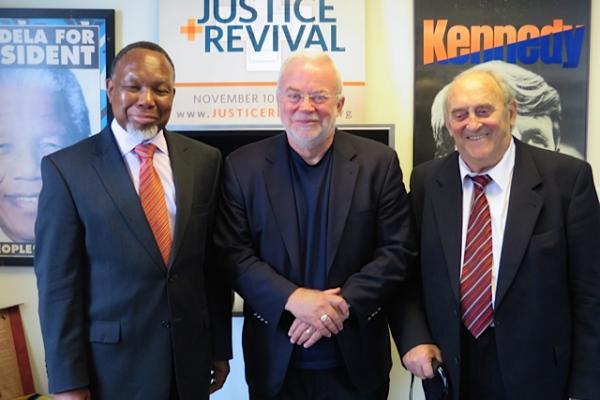I was privileged to co-host with former colleagues the visit of former South African President Kgalema Motlanthe, an ex-convict from the apartheid era. He served 10 years in prison for the “treasonous” act of standing against the Afrikaans Nationalist regime, along with Nelson Mandela and 1000s of others who spent many years on Robben Island or in Pretoria Central Prison. Many died in the process. President Motlanthe was accompanied by Denis Goldberg, who was convicted along with Mandela and served 22 years. Nicholas Wolpe, the facilitator of the trip, is a cousin of the late Congressman Howard Wolpe. Nic’s father would have been one of the Rivonia accused at the trial in 1963-4 but for having made a daring famous escape with several other comrades.
Read the Full Article

